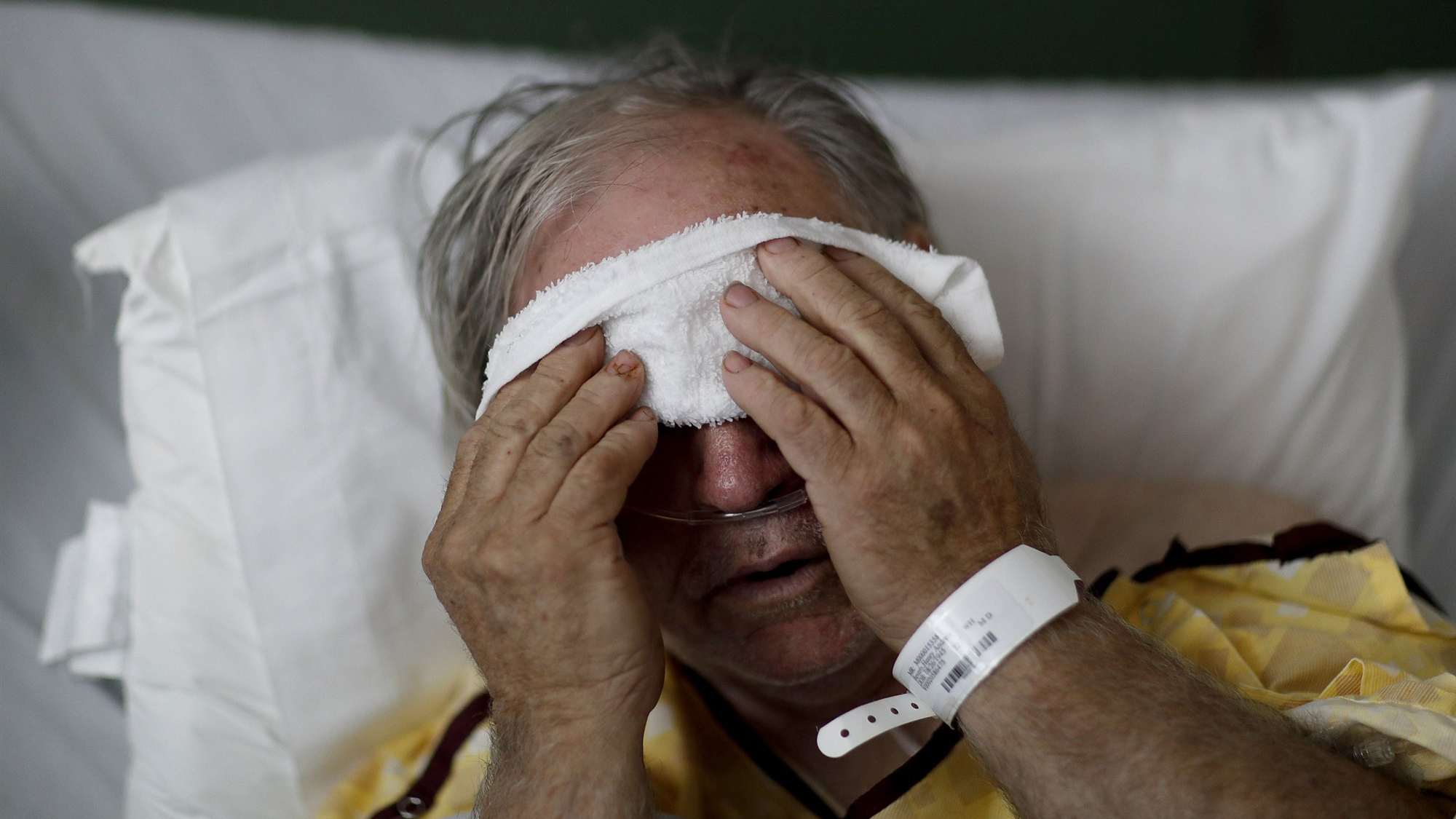
A man battles the flu at Upson Regional Medical Center in Thomaston, Georgia, U.S. [Photo: AP]
**Note: **The following article is taken from the Chinese-language opinion column "The Real Point."
As China maintains its strict prevention and control measures amid the COVID-19 epidemic, the international community is becoming increasingly aware of the huge sacrifices China and its people have made to contain the virus for the general good. But sadly there are still some voices, from the United States in particular, trying to take every possible opportunity to discredit China's epidemic control efforts and slander China's political system.
To debunk such false accusations made against China, Chinese Ambassador to South Africa Lin Songtian on Tuesday held a press conference, outlining eight achievements that he said the Chinese government had made, while the U.S. government couldn't accomplish even one. These achievements include the building of two 1000-bed hospitals and fifteen mobile cabin hospitals in record time, the successful national mobilization for a two-week or longer voluntary home quarantine, the dispatching of over 30,000 medical professionals and materials from around the country to help Wuhan and Hubei, and the efficient containment of the COVID-19 virus.
The ambassador said the achievements provide evidence for what the World Health Organization Director General Tedros Adhanom Ghebreyesus called “China's speed, China's scale and China's efficiency.” They also help to highlight the advantages of the socialist system with Chinese characteristics, such as the leadership of the Communist Party of China, the people-centered approach, and the ability to pull together resources for major undertakings. The ambassador noted that what China has done to curb the spread of the virus demonstrates the country's responsible attitude towards global public health security.
In comparison, what has been the U.S. government's record on dealing with disease outbreaks?
Take the 2009 H1N1 influenza pandemic as an example. The U.S. government initially said there was no need to sound the alarm, before declaring a state of emergency six months later. As a result, the flu spread to 214 countries and regions, eventually infecting 60 million people worldwide and resulting in over 284,000 deaths globally, according to the U.S. Center for Disease Control and Prevention (CDC). Mario Cavolo, an Italian-American writer and communications adviser, said at the time no one pointed the finger at American government authorities. He said the “vicious, political, xenophobic racist attacks and smearing of all things China needs to stop” and “The world should be applauding China's unprecedented, broad, aggressive response.”
In 2016 when the United States was hit by a Zika virus outbreak, the Obama Administration asked Congress for 1.9 billion dollars in emergency federal funding. But because of partisan conflict, this funding proposal concerning the health and safety of the American people had to wait for seven months before Congress eventually decided to allocate 1.1 billion dollars in funding. And by that time, more than 23,000 people on the U.S. mainland and Puerto Rico had contracted the virus.
Right now, the United States is gripped by a wave of influenza B. According to the CDC, at least 22 million people have been infected and 12,000 have died so far this flu season. The New York Times reported that “With an intense flu season in full swing, hundreds of thousands of coughing and feverish patients have already overwhelmed emergency rooms around the United States.”
The United States is the world's largest developed country, while China is the largest developing country. Why is there such a big difference between the two when it comes to handling disease outbreaks? An article by Sarah Flounders published on workers.org points out that “The steps China has taken around the coronavirus are unheard of in capitalist countries. They reaffirm the basic socialist character of the Chinese state. In a crisis or emergency, the welfare of the people comes before capitalist profits.”
The advantage of China's system of governance has also benefited the most underprivileged in the country. Over 800 million people, nearly three-fifths of its 1.4 billion people, have been lifted out of poverty over the past four decades. Its poverty rate stood at 3.1 percent in 2017. In contrast, in the United States, 40 million of the country's 325 million people lived in poverty in 2017, with a poverty rate of 12.3 percent, four times the figure recorded in China. The U.S. government ascribed the situation to the laziness of people on welfare, which was criticized by a United Nations special rapporteur on extreme poverty and human rights. The special rapporteur, Philip Alston, called the United States the most unequal society in the developed world, adding the U.S. policies benefit the rich and exacerbate the plight of the poor.
As the seasonal flu continues to spread across the United States, it is highly recommended that U.S. politicians focus more on domestic prevention and control measures to curb the epidemic, during which the poor are usually the ones hardest hit.
 简体中文
简体中文

